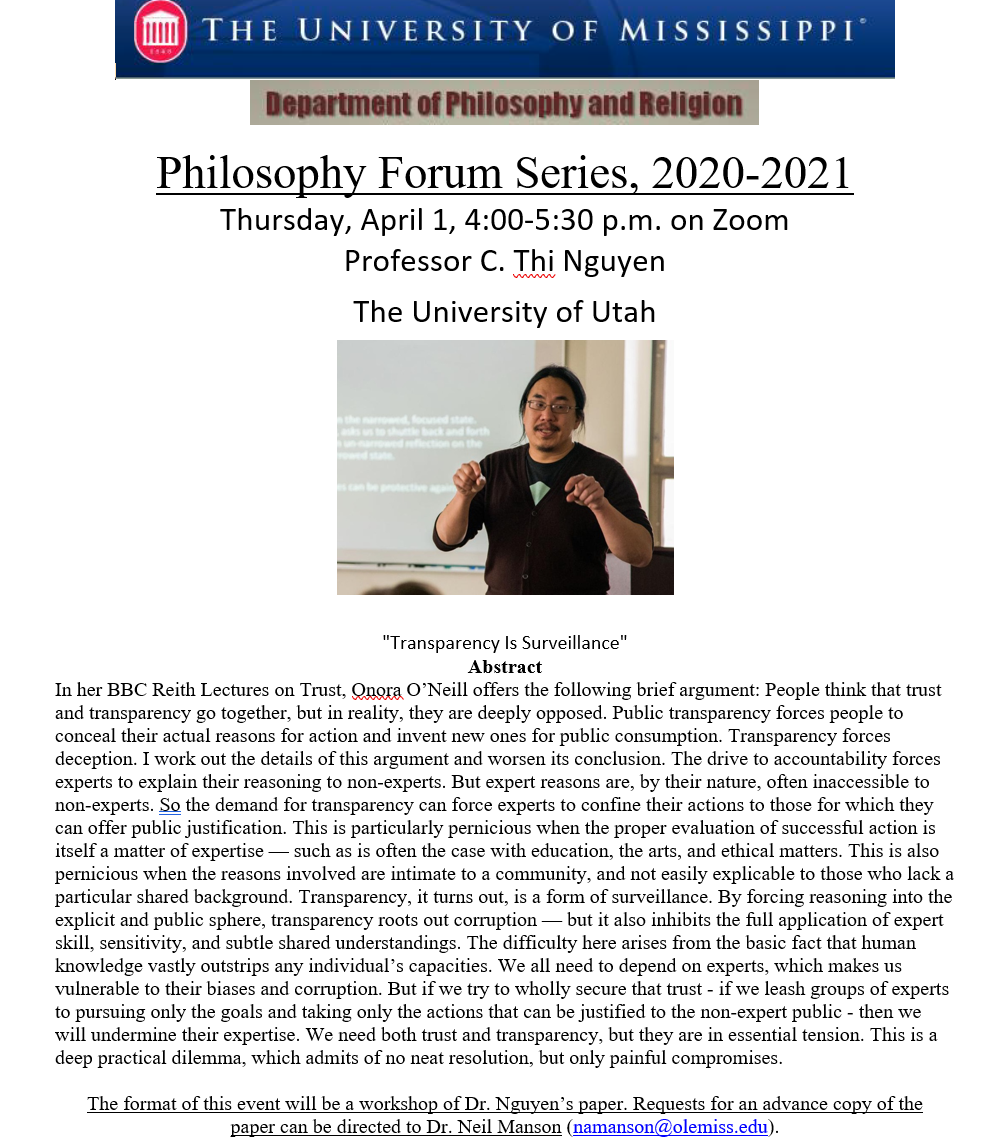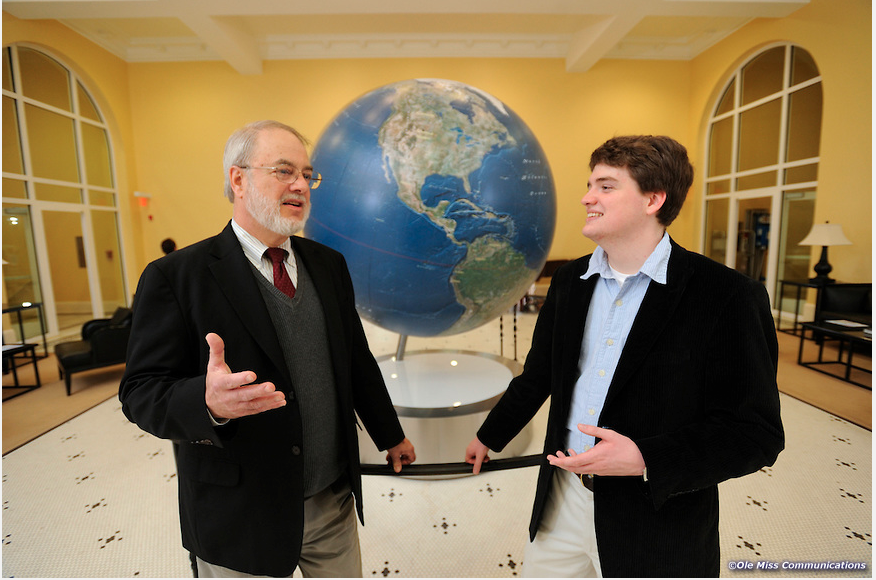
Visiting Assistant Professor of Philosophy
contact information
email: basmyth@olemiss.edu
professional background
Ph.D., McGill University (2006)
D.E.A., Université Paris I (2003)
B.A., M.A., University of Waterloo (1999)
I also spent a year at the Institut für Soziologie, Karl-Franzens-Universität (Graz, Austria)
teaching
I have taught at the University of Mississippi since 2013. I previously taught at Mount Allison University and the University of Memphis, where in addition to undergraduate courses I offered several graduate seminars in my areas of specialization. Here at UM I have taught the following courses:
PHIL 101 Introduction to Philosophy
PHIL 328 Biomedical Ethics
PHIL 390 Feminist Philosophy
research
My research deals primarily with Critical Theory and phenomenology (especially the work of Merleau-Ponty, which foregrounds questions of embodiment), and how these traditions intersect with regard to nature and history. The basic questions that guide me have to do with historical agency in relation to systemic oppression, notably (but not exclusively) sexism and racism, and other forms of social injustice. Since very early on I have been inspired as a philosopher by how German historian Lutz Niethammer once glossed the point of his own discipline: “instead of subjecting individuals to the fiction of an objectively meaningful process or fobbing them off with all manner of aestheticized fragments, it seeks to do the groundwork of their historical self-understanding and their capacity for historical action.” Among other things, this leads me to interrelated (and somewhat unorthodox) interests in myth, heroism, and epigenetics.
published volumes
The Sensible World and the World of Expression: Course Notes from the Collège de France, 1953 – (Northwestern University Press, 2020) [translation with substantive introduction and extensive notes of Maurice Merleau-Ponty, Le monde sensible et le monde de l’expression: Cours au Collège de France. Notes, 1953 (Métispresses, 2011)]
Marxism and Phenomenology: The Dialectical Horizons of Critique (Lexington Books, 2021) [collection of 10 chapters, including one of his own, plus substantive Introduction, co-edited with Richard Westerman]
Merleau-Ponty’s Existential Phenomenology and the Realization of Philosophy (Bloomsbury Academic, 2014) [monograph]
volumes in progress
Investigations into The Literary Use of Language: Course Notes from the Collège de France, 1953 [translation with introduction and notes of Maurice Merleau-Ponty, Recherches sur l’usage littéraire du langage: Cours au Collège de France. Notes, 1953 (Métispresses, 2013), under contract with Northwestern University Press]
Merleau-Ponty: An Ontology of the Imaginary [translation of Annabelle Dufourcq, Merleau-Ponty: une ontologie de l’imaginaire, under contract with Springer]
volumes in the pipeline
Incarnating the Good: Rethinking Heroism as an Embodied Phenomenon [monograph]
Hyperdialectical Materialism: Nature and History in Merleau-Ponty’s Phenomenology [monograph]
An up-to-date list of my publications and work in progress can be found here.








